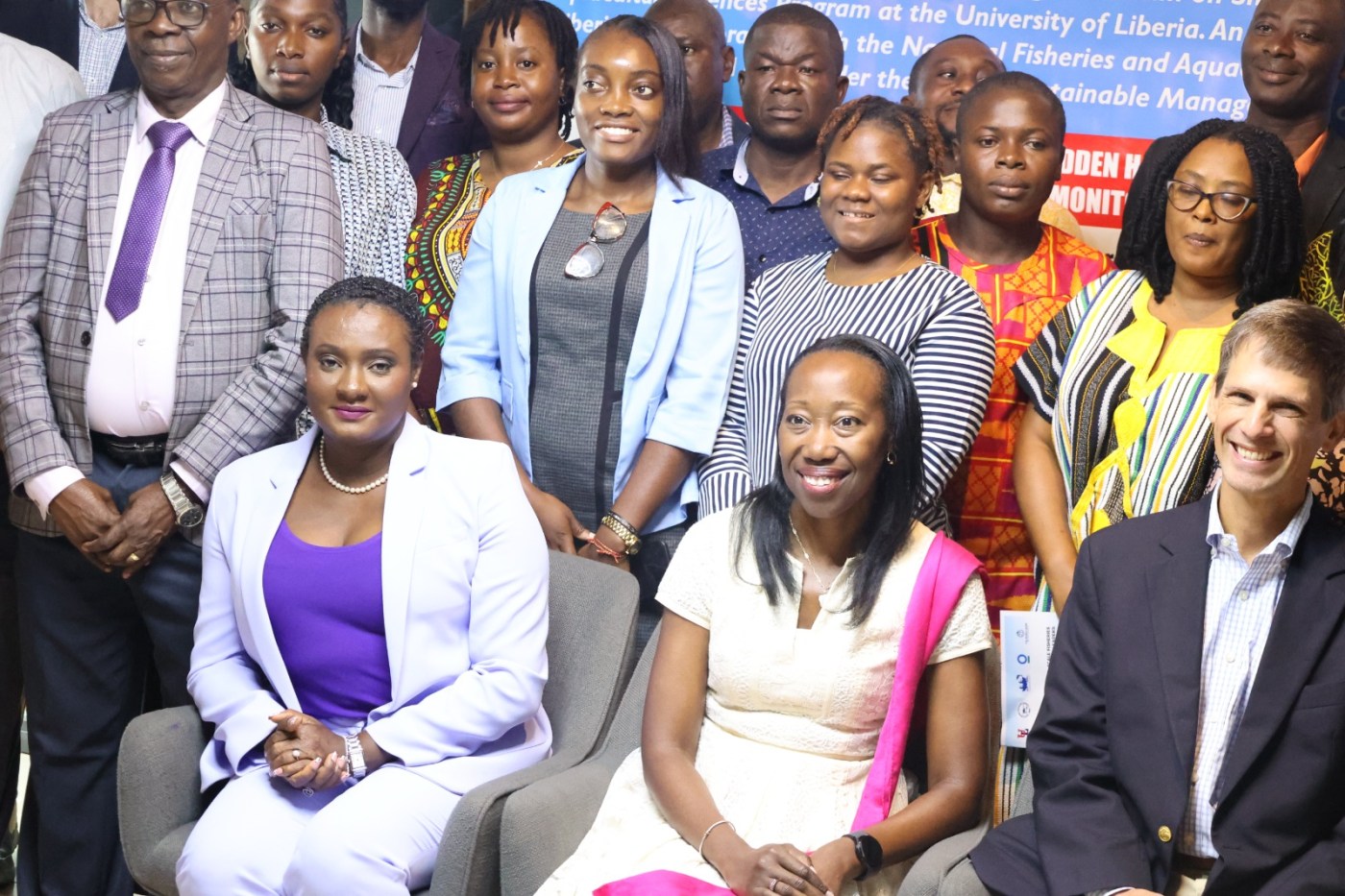Monrovia, Liberia – The Director General of the National Fisheries and Aquaculture Authority (NaFAA) has underlined the importance of small-skills fisheries in the Liberian Fisheries sector characterizing them as the heartbeat of the fishing communities across the Country.
Speaking Tuesday, September 10, 2024, in Monrovia at Royal Hotel, under the opening session of a three-day fisheries workshop centered on the development of small-scale fisheries training curriculum for future leaders, organized by the University of Liberia Fisheries and Aquaculture Department and the Liberian Fisheries Authority, NaFAA in collaboration with Duke University, FAO, and Conservation International (CI).

Madam Emman Metieh Glassco stressed that small-scale fisheries provide livelihoods for millions of people, including some of the most vulnerable populations -women, youth and Indigenous fishers.
Small-skill fisheries, according to Madam Glassco, are the backbone of food security, nutrition, and income generating for many rural families revealing further that they not only provide fish for consumption but also a basis for economic growth, social stability, and environmental preservation in Liberia.
The Liberian Fisheries Authority Director General also noted that small-skills fisheries have been underestimated, under-documented, and underfunded over the years and said, “it is time we change this narrative.”
By using the illuminating hidden harvest technique, Madam Glassco added, the government pledges to fully explore small-scale fisheries in order to really appreciate their significance, challenges, and possibilities. She pointed out that this strategy will help the Fisheries Authority to develop policies addressing what she described as the actual needs of fishermen, to make more informed decisions, and to increase sector resilience.
Speaking further on the makeup of the curriculum, DG Glassco said, “we have come together not just to develop a training curriculum, but to build the foundation for a future sustainable fisheries management.”
Declaring the three-day event open, Madam Glassco then emphasized three cardinal ideas: inclusion, sustainability, and cooperation. She urged the voices of women, young people, and underprivileged groups to be at the center of the debates and choices and advised that the curriculum should be inclusive.
Since the fisheries authority is in charge of properly managing the resources since the resources are not unlimited, Madam Glassco also advised the organizers to keep sustainability as their top priority.
Cooperation among government, communities, international organizations, and the business sector will help the small-scale fishing sector to achieve what Madam Glassco described as a major and long-lasting change.

Speaking also at the beginning of the three-day event, World Bank Country Manager Madam Georgia Wallen remarked “Today’s event represents an investment in Liberia’s future leaders in the fisheries and aquaculture sector.”
An noteworthy advance, according to Madam Wallen, is the acceptance of the “Illuminating hidden harvests global approach for assessments, analysis, and monitoring of small-scale fisheries”.
“on behalf of the World Bank, I want to sincerely congratulate all stakeholders for great ongoing commitment and cooperation”.
Madam Wallen revealed that the World Bank, through Bank financing for the Liberia Sustainable Management of Fisheries project, is dedicated to fulfill its goal of eradicating extreme poverty and advancing shared prosperity on a habitable world.
“Our support for the fisheries and agriculture sector is anchored in the pursuit of our mission. We are encouraged that a major result of our cooperation over the project is the creation of the Fisheries and Aquaculture Science Program (FASP) at the University of Liberia. FASP has transforming power and emphasizes on increasing human resource capacity required for efficient fisheries management, agriculture, fish, processing, and marketing.”
She also said FASP is directly in line with Liberia’s national development goals, especially in the areas of food, security, resource conservation, capacity building, research, and sustainable fisheries management. These skills are therefore vital for meeting the needs of the Liberian people cutting across the public and private sectors.
“Protection of Liberia’s rich marine resources for the long run depends on arming the next generation of leaders with knowledge and experience to effectively manage Liberian huge aquatic resources. With more than 100 students registered in the first two semesters, we are happy that a great spectrum of students have showed great interest in the FASP. This is evidence of the program’s usefulness and it is vital part in developing technical knowledge necessary to design Liberia’s fisheries industry in next years. Looking ahead, we excitedly await the completion of another major project milestone: the building of the regional center of excellence for fishery sciences, and governance at the University of Liberia. This Center, supported by the project, will facilitate faculty training”.

